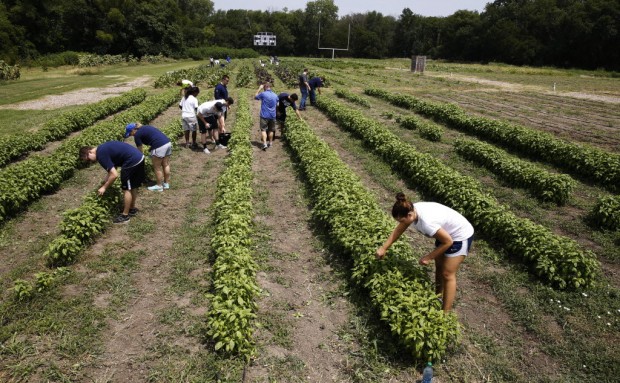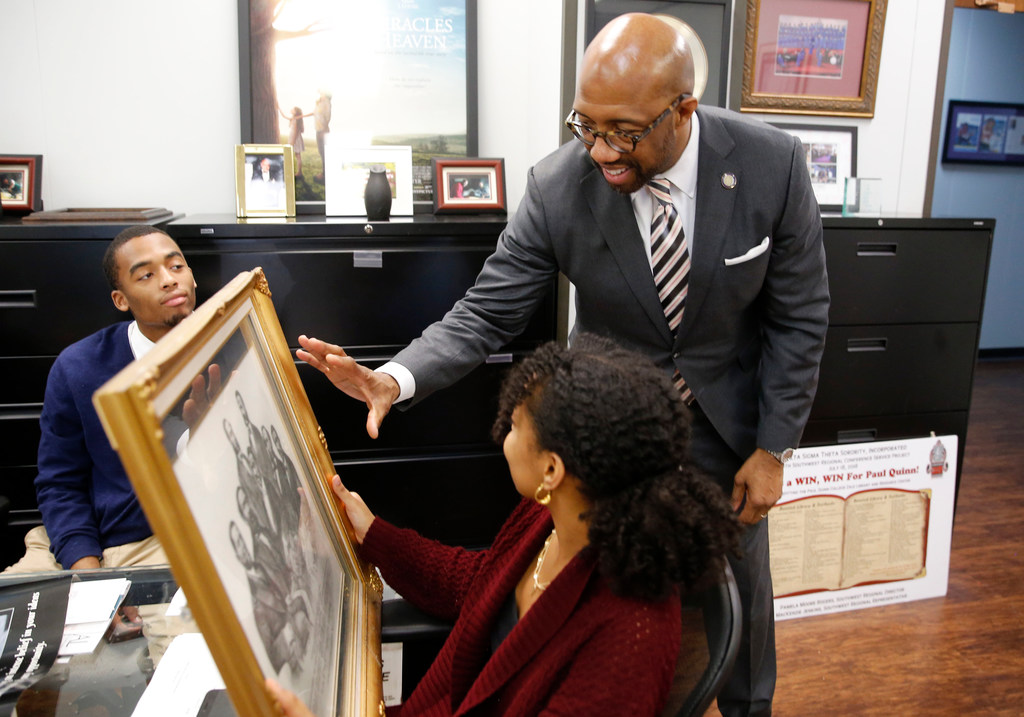“We were down. We were 18 months to two years from closing,” Michael Sorrell said while recounting the state of the Dallas-based historically black college when he took over affairs in 2007.
At the time, the college, Paul Quinn, was going through a lot of struggles; it was on the verge of bankruptcy and de-accreditation while enrollment had also dropped from 1,000 to 150 students.
So Sorrell, without any experience in higher education at the time, had to take a tough decision – to turn the school’s football field into an organic farm. He also received a $1 million donation to rid the campus of more than a dozen abandoned buildings, changed the liberal arts curriculum to one with a career focus and ultimately required students to work part-time jobs as part of their studies, reports Education Drive.

Today, the school has seen its enrollment increase to more than 550 students, infrastructure upgraded and debt reduced to zero. But these did not come easily for Sorrell.
Paul Quinn, affiliated with the African Methodist Episcopal Church, was founded in Austin in April 1872, at the height of Reconstruction. Its mission was then to educate freed slaves and their offspring. The college moved to Dallas in 1990, taking over the campus of the defunct Bishop College.
When Sorrell, a Dallas-based attorney, was named president, the school was on the verge of collapse. Sorrell was originally supposed to be a caretaker president for 90 days with the hopes that his previous success in business could help turn the college around for the better.
Sorrell, then 40, and desperate for things to get better took a controversial decision – he terminated a football programme the school had at the time and turned the playing field into a farm where students can work and from which food gets donated to the surrounding community and sold to businesses for profit. The WE Over Me Farm project subsequently paid off.
“I took some criticism, but we couldn’t afford football,” Sorrell told The Undefeated. “The dominant reason for us terminating the football program was economic. But another reason was maybe there’s more than one way out of poverty for young black men. Maybe your mind will sustain your climb out of poverty more than your body.”

A Dallas businessman and environmentalist, Tammel S. Crow, would support Sorrell towards this move.
“He said, ‘Can you do that?’ I said, ‘I’m the president,’ ” Sorrell said. “So he gave some money to turn 30 yards of the football field into a community garden. He also gave money so we could open up a community garden at the church across from the school.” Crow later connected the college with Pepsi Co., which also contributed financially to the farm.
“We didn’t know anything about farming,” Sorrell said. “We were inexperienced, but we had righteous rage and we were unafraid to fail. True failure would have been never trying to improve the condition of people in this community, and we thought that was wrong.”
WE Over Me Farm would later grow more than 60,000 pounds of produce and feature a 3,000-square-foot greenhouse. In 2015, the school hired a farm director who specializes in organic farming and opened a farmers market that brings together 10 to 12 vendors each week. Popular items include collards, mustard greens, cabbage, lettuce, carrots, sweet potatoes, tomatoes, garlic, okra, cucumbers, corn, peas, watermelon, cantaloupe, pumpkins and squash, reports The Undefeated.
“It saved our school in one regard because it changed the narrative,” Sorrell said. “No longer were you going to talk about Paul Quinn from the perspective of a need institution that did not have what it needed and should be pitied.
“When you are in a crisis, you have to change the narrative, and that’s what it allowed us to do. It gave people a reason to look at us and see hope. It’s one thing for me to go around giving speeches about believing and hope and we’re going to accomplish things. It’s something entirely different to give people tangible proof of hope. And from that moment forward, we began to exceed people’s expectations.”

The farm wasn’t all for Sorrell. In 2013, he experimented with an urban work college which required all students to work at jobs on campus and later off campus for potential employers.
Students have $2,400 of their wages go toward their tuition and then keep the rest. In 2017, Paul Quinn was designated by the U.S. Department of Education as the ninth federally recognized and the first historically black work college.
In July, the college announced that the inaugural site of its urban work college network will be in Plano, a Dallas suburb. In 2018, it opened a second location in Plano, Texas. Sorrell, who is now a doctor of education in higher education management, has since been highly recognised for his work.
Fortune magazine, in 2018, named him one of the “World’s 50 Greatest Leaders.” After 12 years under his leadership, Dallas News writes that “the small, historically black, faith-based college in southern Dallas has gone from near death to a financially stable, reimagined four-year higher-ed school that’s becoming a template for colleges around the country.”










